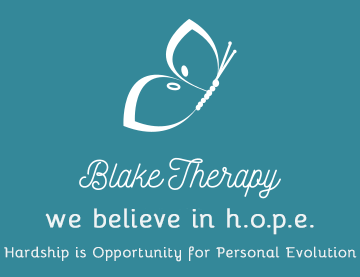In our first post on this topic, we discussed ways that our gut is connected to every aspect of our health & well-being – physical, mental and & emotional. We ended with a discussion about the ENS (Enteric Nervous System). Jenny Libhken, MS, CNS, LDN, picks up from the end of the last post, and discusses how the brain takes part in GI function, so if you have not read part I, definitely take a peak at that first!
Not many people realized that the brain is involved in our gastrointestinal functions, just as much as the enteric nervous system is.
The brain, via the vagus nerve (one of 10 cranial nerves), controls all of the same functions that the ENS does. Inadequate vagal function may lead to a plethora of issues.
- Impaired motility may cause candida overgrowth and increased strain on the liver due to inability to eliminate waste optimally and increased the time that stool and pathogenic bacteria remain in the gut
- Poor gastrointestinal muscle tone may loosen valves that keep GI contents where they need to be and prevent spillage. Loose valves may cause heartburn and acid reflux, as well as small intestinal bacterial overgrowth (SIBO). With this, inadequate gallbladder contractions then compromises proper digestion and absorption of nutrients
- Inadequate enzymatic release compromises digestion of macronutrients. Low Hydrochloric acid and stomach acid may cause inability to digest proteins. Low pancreatic enzyme secretion inhibits carbohydrate digestion and poor biliary function interferes with digestion of fats
- Blood flow and fluid balance play a vital role in intestinal permeability.
Imbalance may trigger adult-onset food sensitivities, gluten and dairy intolerance or food addictions. Gluten and/or dairy that have not been fully broken down are then being absorbed through the improperly opened tight junctions in the intestinal walls.
Gluten, a protein in a variety of grains, such as wheat, rye, and barley, forms gluteomorphin compounds when not fully digested. Inadequately digested dairy protein forms casomorphins. These opioid-like compounds act like an actual drug on the brain, causing food addictions.
Increased intestinal permeability, also, can play a detrimental role in autoimmune conditions.
As you can see, the relationship between the gut and the brain is very intricate and co-dependent. Thoughts and feelings may have a profound effect on the gut and GI issues may cause a variety of cognitive, mental, and emotional imbalances.
A brain or nervous system trauma (concussion, losing a loved one, working alternating night and day shifts or frequently changing time zones, just to name a few) may trigger constipation or diarrhea, heartburn, food intolerance or more serious conditions.
An unhealthy gut, (either due to poor eating habits, antibiotic use that wipes out the intestinal flora, H.Pylori or parasitic infections), may affect sleep, cause depression, cause brain fog, play a role in hyperactivity and/or lack of attention, and decrease ability to concentrate and multitask. Those, by the way, are just a few examples.
When problems arise, a detrimental domino effect takes place. However, we can use this domino effect to our advantage. We can optimize the health of our brain through our gut and improve our gut health by nurturing and nourishing the brain.
For example, as mentioned previously, our gut motility is partly controlled by the vagus nerve that regulates intestinal muscle contraction. When increasing fiber and water intake and taking probiotics are not enough to alleviate constipation, and the real problem is poor GI muscle tone, activating the vagus nerve is the missing piece of the puzzle. Did you know that gargling, using a neti pot, or singing very loudly stimulates and/or raises the palate and this, in turn, innervates the vagus nerve? These easy activities are like physical therapy to rehabilitate the gut via the brain.
The best example of gut work improving the brain, in my opinion, comes from Dr. Perlmutter and his book “The Brain Maker”. He talks about one of his patients whose Tourette Syndrome was completely alleviated by intensive probiotic therapy.
Knowledge is power and with research coming out every day, shining more and more light on previously unknown fields of the microbiome and the brain and gut connection, the future look brighter and brighter.
It is time to take charge of your health and get started on your journey to optimal well-being. Now is a great time to set up your appointment for a nutritional consultation. I will guide you through the science and the research, create an individualized plan to help you address your health issues and concerns, and support you every step of the way to a healthier, new you.
– Jenny Libhken, MS, CNS, LDN
Email: jenny@blakepsychotherapy.com Phone: 410-988-4002
More information about Jenny Libkhen




